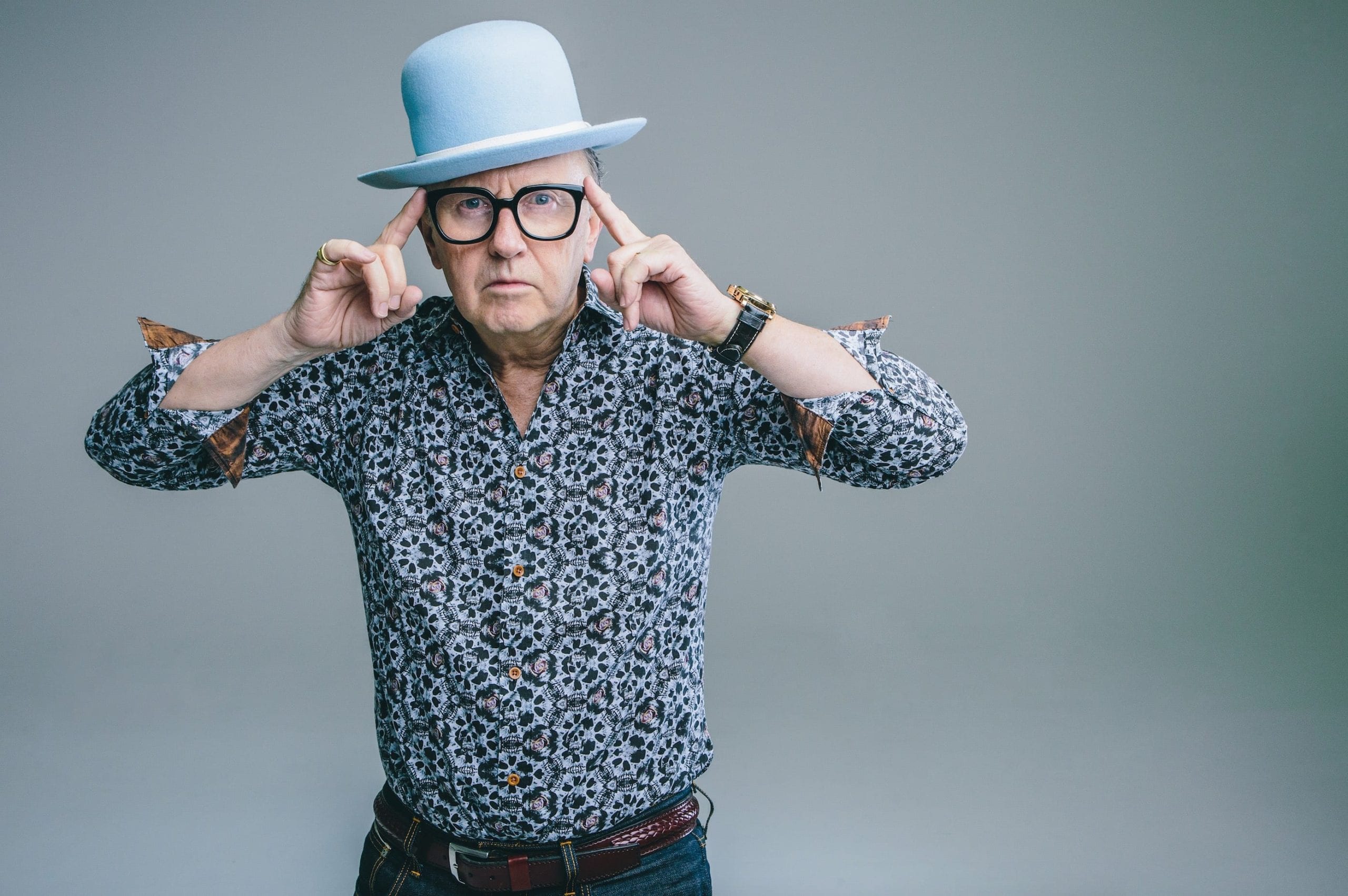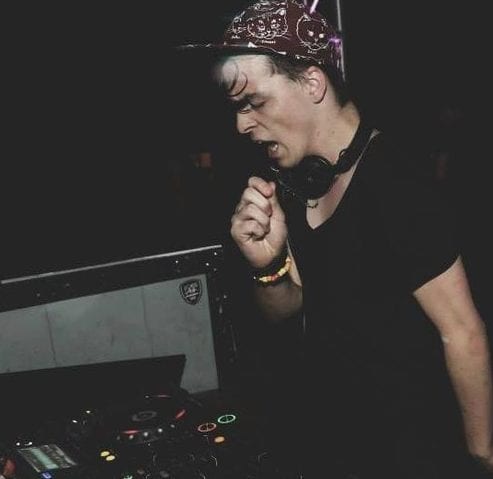You have to understand the past to understand the present…
Those pertinent words of legendary astronomer Carl Sagan can be applied in any aspect of life. But they have serious resonance with all of us who have a real interest in music. Especially bass music in all its many forms and flavours.
Even in the most futuristic bass aesthetics, deep vapour trails of soundsystem culture and reggae roots can be traced – be it through the low end, samples, vocals or myriad studio techniques first discovered in dub culture.
In summary? The story of bass is rich and goes back well over 60 years.
It’s a story that David Rodigan MBE is always keen to tell. Following, supporting, celebrating and competing in his own specialist corner of bass-related music – reggae – David has watched the UK erupt in styles since jungle first exploded in the early 90s and has been joining the dots ever since. It’s evident in his DJ sets, his broadcasts, projects like last year’s Rebel Sound with Chase & Status and Shy FX, and his own events such as Ram Jam where DJs from all related genre tessellate to tell bass’s expansive tale.
His latest party concept Foundation takes this one step further with DJs picked from their specialist sound to really dig deep, tell their own chapter and show its development through their own reference points and selections. Launched in February earlier this year at Electric Brixton with Preditah, Dillinja, Matt Jam Lamont, Youngsta, Slimzee, Channel One and many more, it was a huge success.
Now returning to Electric Brixton, the line-up is even bolder, broader and inter-connected:
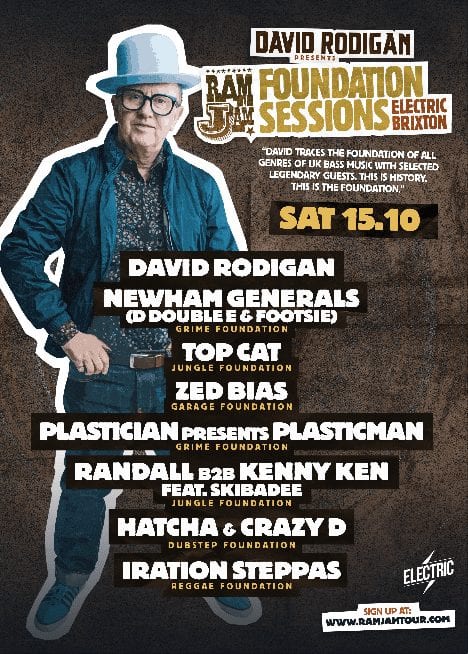
What a rollcall! It doesn’t stop at Electric Brixton, he’s taking the Foundation show on a full tour taking in Leeds, Nottingham, Brighton and Manchester (full details)
Fresh from RamJamming festivals and Ibiza throughout the summer, we caught one of David’s only interviews this year to find out more about Foundation and get his take on the development of bass music through the ages. If there’s one man who truly understands the past, present and future, it’s Mr Rodigan.
Foundation: I got the impression that last year’s show was an experiment that was more successful than you imagined?
That sums it up. It definitely was an experiment and the energy was phenomenal. Bass music has developed into such a broad church that encompasses so many genres and styles, so myself and my manager Jon wanted to take a broader look at it all. These genres – UK garage or jungle for instance – aren’t a new young form of music anymore. They’re established over decades and have real roots. There’s a story to be told and connections to be made. We wanted people to hear where it all started, how it was inspired by early developments and how it all relates. Jon was a major curator in this. I have a deep, detailed knowledge of reggae in all its formats but I would say I have a much more general knowledge of other forms such as jungle or grime or dubstep.
You’re entrenched in bass culture, you play stages with so many different artists from these genres, I’d argue your knowledge is a little better than ‘general’…
I’m clearly aware of the genres and the more prominent names in them. But I’m not a specialist. My first experience of these new bass genres goes back to the Music House days when I would cut dubplates in the early 90s. I saw jungle blossoming and knew how exciting it was straight away. Then how jungle developed into drum & bass and UK garage rolled out soon after. I watched it all develop and identified the consistent danceability. This is so important for me and should be for all DJs….
We’re in the cheering up business. We go on stage and cheer people up. We’ve all had tedious and mundane jobs. Music is a tremendous escape and we leap at it. I’m in a privileged position to do this for a living and still have fun with it. That’s not the case for many people. Never forget that your duty as a DJ is to go on stage and cheer people up. I’m not saying we have to be like Ken Dodd – we’re not getting tickling sticks out here – but we are duty bound to entertain. People are paying hard earned cash for this!
I’m intrigued to hear any cutting house stories from the jungle era. This was around the time you were competing in some of the most notorious clashes.
Exactly. I always remember DJ Hype. He and other jungle DJs have told me their first impression of me. How this older guy would come in, be taken to the head of the queue without ever asking and be dealt with personally. All these young guys not having a clue who I was, getting plates cut quicker than they did. Hype has told me how he’d watch how I’d very strategically and very specifically cut dubs in order on the plates. He remembered me specifically cutting a sequence then watching the video of me replicating that order at a clash.
Naturally I was influenced by their dubs while I was there. I’d hear the old samples and what they had done with them and realised these selectors were also music creators; jungle wasn’t patterned off anything. The tremendous energy of it was so special and unique. The only form of music I could compare it to was ska – the energy and the way it sounded like nothing else at the time. It had the West Indian connection, the energy of soca and calypso with those big strong voices you associated with the reggae music. It brought everything together with danceability. Jungle, drum & bass and UK garage would do the same 20 or so years later.
How do you observe tribes in the 21st century? Way back you would have soul boys or mods or rockers, punks and so on. More recently there was always a very clear divide between genre communities but this is nowhere near as dominant. There’s a tangible interest in connecting the dots….
Big time. I actually considered this at Outlook Festival. It was amazing to see thousands of people, young people, there together to appreciate all forms of bass music. Late teens, early 20s dancing around to my selection of roots reggae records. It’s beautiful. And I observed these people move from stage to stage, camp to camp and thought how people don’t stick in one genre like they used to. It’s influenced my sets, of course. I mix things up and play grime, dubstep, new music from Jamaica and reflect back on jungle and what we did with Rebel Sound. The days of people wanting to hear one type of music are gone and when you see that behaviour it stands out. Recently I played Common People. Out of all the people in crowd there was one man who wasn’t remotely interested in anything I was playing unless it was a Studio One reggae record. He seemed bemused and frustrated by anything else I was playing. He didn’t approve.
You clocked him specifically from the stage?
Couldn’t miss him! He was at the front. It was clear he knew me for a very specific music and was expecting deep and serious b-sides on Studio One. I did play some records and dedicate them to him. He was delighted. But fans like that are the exception now. We’re in an open playing field now – literally in festival cases. People come out to play. And we have these rootical building blocks to entertain them all.
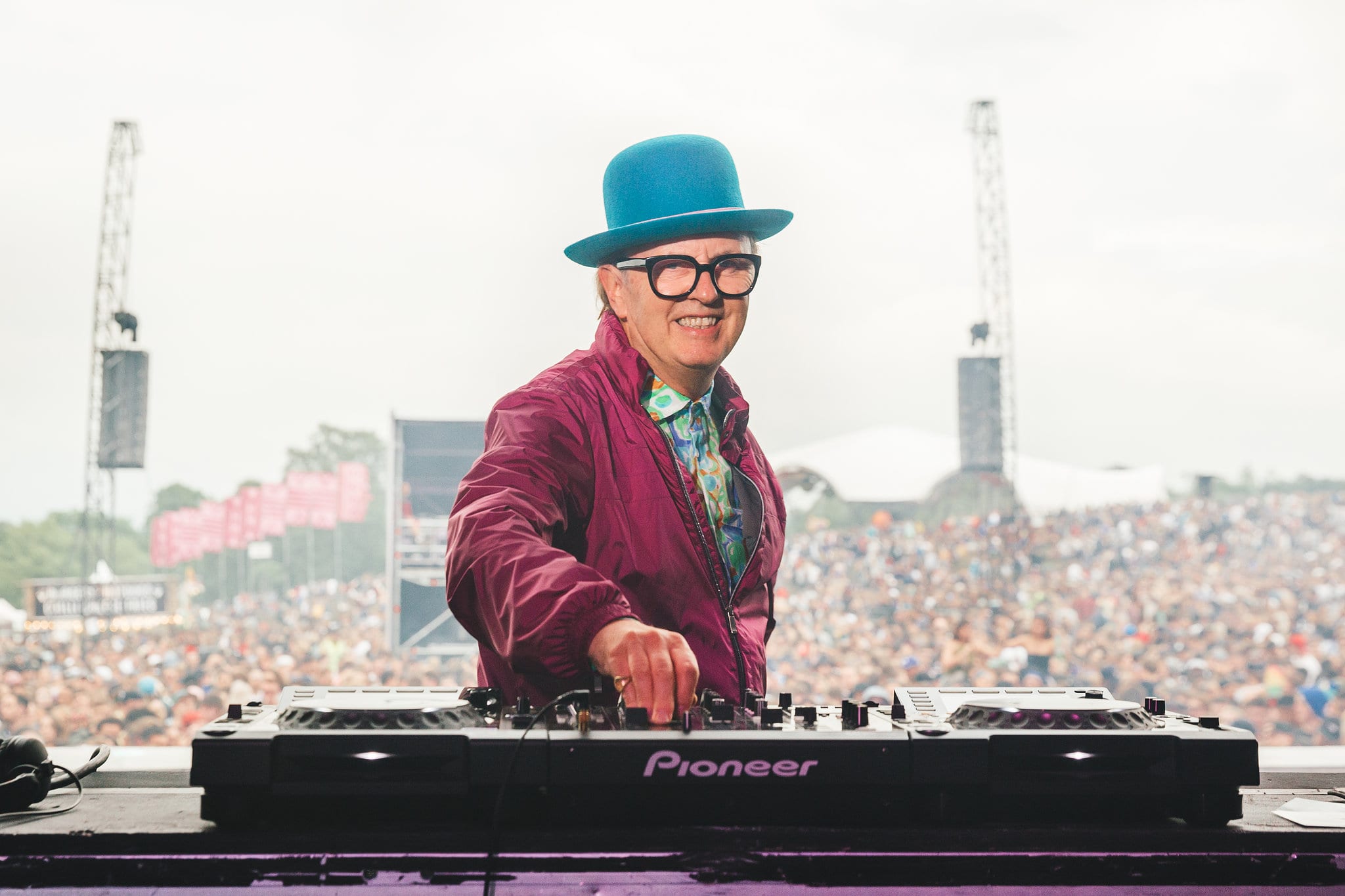
Does the expanding stock of rootical blocks make your job easier or harder as a selector? You’re not a 10,000 tunes on a USB stick DJ are you?
It makes my job more enjoyable! I have experimented with different technologies. But there’s a saying – in an abundance of water, the fool is thirsty. You have kid-in-a-candy-store syndrome. I’ve seen selectors stand there scratching their head, figuring out what to play next because they have so many options. Bring less, you’ll play more and you’re saved of two pests: hurry and indecision. When either of them kick in you’re in danger of looking like a klutz in front of 200, 2000, 20,000 people who want to see you do your best. That’s why I step in front of the turntables and go into direct contact with them. It makes such a difference to break that barrier and put yourself in that no mans land between the crowd and the turntables and join in the fun. Why would I want to waste time on making decisions on what to play when I can do that? One thing I don’t like to do, though, is pre-empt things. Unless it’s a clash – where I do serious homework – I just take my little pouch that has everything.
A pouch?
Precisely. Few DJs play off CDs now but those who do usually have a great big book of CDs. So a number of years ago I started to reduce it to a small pouch like you used to find on the back seat of someone’s car 20 years ago. A handful of CDs, but on each one there are 20 tracks. That’s more than enough to choose from. With them I can have fun, I can make big broad brush strokes – I can play a ska record, a roots record, a dancehall record, some records that are brand new and very exciting. I find that very stimulating. It’s the crux of foundation culture. Five genres, extensively, in an hour…. And that’s without the new culture of just cueing up the hooks from big songs one after the other.
So you’re just teasing the records?
In a way. A lot of reggae selectors are now doing this – cueing up the big forwards from each song and not letting the music breathe at all. Generally it’s just the chorus or first verse. The song can’t breathe, you won’t hear the bridge, the vibe can’t be built. This is very frustrating. People have gone to great efforts to make this song, we should respect that when we play it and now throw them away! Selectors should build a vibe. There’s this confusion between hype and enjoyment right now… The audience needs to enjoy the song and it’s been a sad development in the reggae world.
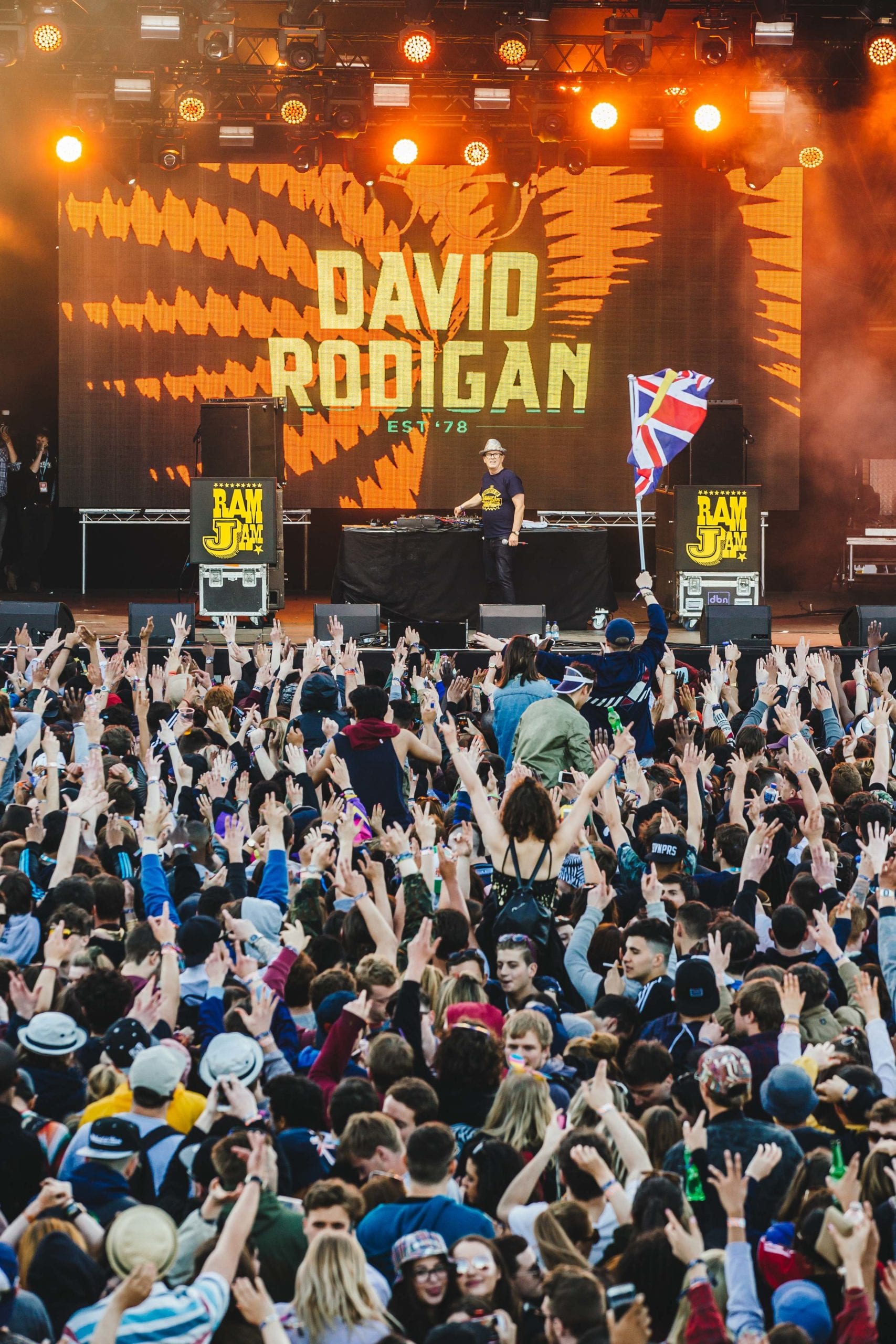
Instant gratification is rife in all musical worlds…
Yes, it’s part of the world we live. Music videos have no shot that last more than two seconds. Online, no communication can be any more than 140 characters. Short, sharp shocks. It has to be immediate. This is evident the minute you walk onto the street; people walking and swiping away. We used to be conscious of this and would look up continually but now people seem too desperate to see what’s happening in their social world. I’ve been in conversations with people who have stopped mid conversation to check their phones. They look at you and their phone and you and their phone. While you’re talking to them. You must have experienced this?
All the time. But who does this to David Rodigan?
People who I no longer talk to. As soon as they do it I walk away. The conversation ends. But I’m old school – it would be considered extremely rude not to give people eye contact and wait for people to finish what they’re saying. People find it hard to listen now – there’s a lot of people talking over people. Or just not talking at all and gathered together to look at their phones.
Some acts acutely express that people put their phones away during their performances. Would you do this?
I would love to. I’ve never understood videoing a show that’s happening in front of you. All that bass distortion and terrible picture quality isn’t a recollection of what you’ve experienced. You’re not experiencing it because you’re there watching a screen! This might sound extreme but how can you look back at that and think ‘this is a moment’?
I didn’t film Bob Marley & The Wailers in The Greyhound on Fulham Palace Road in 1974 but I can remember it like it was yesterday. The original Wailers, the original line up. In a pub. I didn’t need a phone. I didn’t need a selfie. Some things can’t be captured – they become a memory because of the experience and that experience can’t be tangible if you’re looking at it through a little screen. That’s what makes memories, especially ones attached to music that you know you will never repeat, so special.
Make memories at Foundation Sessions: Electric Brixton, October 15 with David Rodigan, Newham General, Top Cat, Zed Bias, Plastician, Randall, Kenny Ken, Hatcha, Crazy D, Iration Steppas. Get tickets
Foundation Sessions is on tour:
30.9: Canal Mills, Leeds
1.10: Brickworks, Nottingham
8.10: Concorde 2, Brighton
15.10: Electric Brixton, London
20.10: Warehouse Project, Manchester
Full info & tickets
Image credit: Gobinder Jhitta
